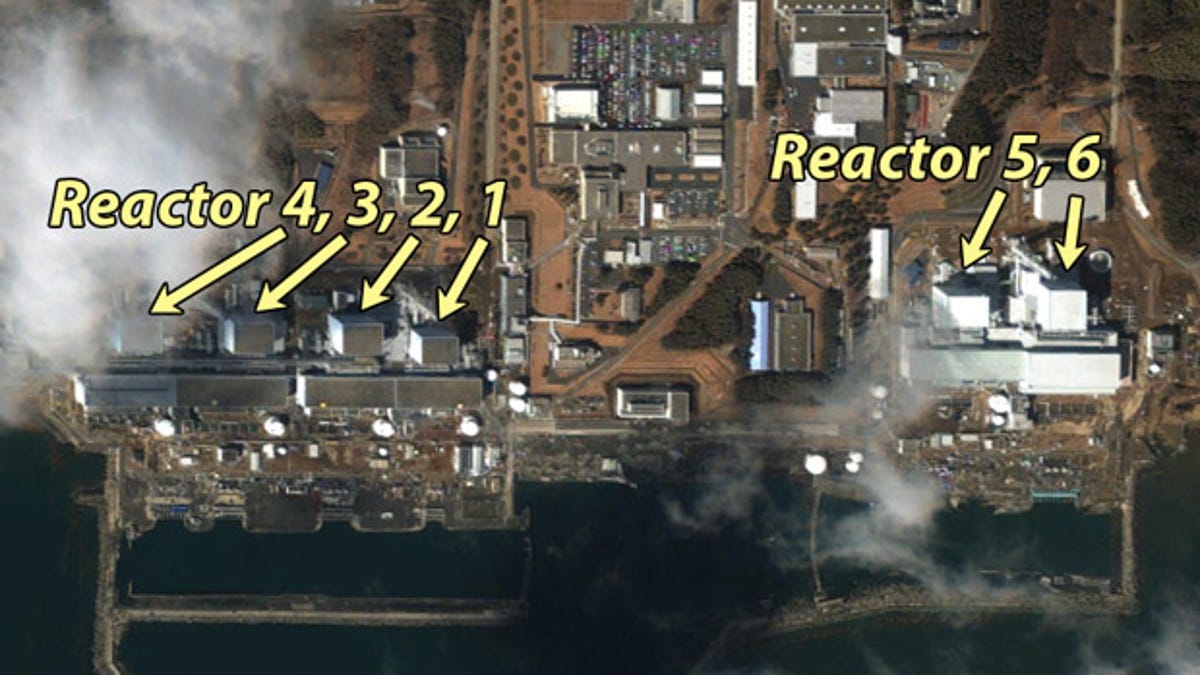Japan 'astonishingly unprepared' for Fukushima disaster
With the one-year anniversary of Japan's nuclear disaster approaching, an independent panel says Tepco and the nuclear industry had a false sense of security.

This illustration, based on a GeoEye satellite photo viewed through Google Earth, shows the locations of the six Fukushima Daiichi nuclear reactors.
A panel set up to review the events of last year's nuclear disaster in Japan has released a withering criticism of the country's nuclear industry and the government's response to the crisis.
The investigation details mistakes made in the aftermath of the massive earthquake and tsunami one year ago which killed tens of thousands of people in Japan and caused the worst nuclear accident in decades. It was prepared by the Rebuild Japan Initiative Foundation (RJIF), a think tank created last year and funded by individuals and businesses.
The latest version of the report, published today on the Bulletin of the Atomic Scientists, delves into the actions taken by Tepco, the utility that owns and operates the Fukushima Daiichi plant, as well as the role of the government and nuclear regulators.
Japan's difficulty in overcoming the crisis set off by the tsunami has implications for other countries as they evaluate current safety measures and build new power plants, RJIF said. "Even in the technologically advanced country of Japan, the government and the plant operator, Tokyo Electric Power Company (Tepco), were astonishingly unprepared, at almost all levels, for the complex nuclear disaster that started with an earthquake and a tsunami," the report said.
The crisis was kicked off on March 11, when the giant tsunami washed over the sea wall protections, flooded the Tepco plant, and knocked out both grid power and backup batteries. In the immediate aftermath, workers didn't have reliable instrumentation and, to compound problems, made mistakes such as not venting the built-up steam in the reactors early enough, according to the report.
The release of steam raised the pressure in the reactor and caused the build-up of hydrogen gas, which later caused two explosions in the containment buildings.
Beyond tactical mistakes, the report takes aim at the industry's lack of preparedness and track record of downplaying potential risks. In a country scarred by atomic bombs, the nuclear industry created a myth of "absolute safety." More realistic safety drills would have led to local opposition to nearby power plants, it said.
Regulators and the government's response to the crisis come in for blunt review as well. The government's communications during the crisis were insufficient. The crisis also laid bare the problems in enforcing and updated safety regulations, which are hampered by the close ties between industry and the government. "Having great confidence in its technical capabilities, the Japanese nuclear community did not take the need for improvement of safety regulations seriously before Fukushima," the report said.
Things could have been worse. But some steps to improve earthquake readiness prevented other problems, according to the report's authors, who said that the nuclear industry and government need to better anticipate future crises to be more resilient.

